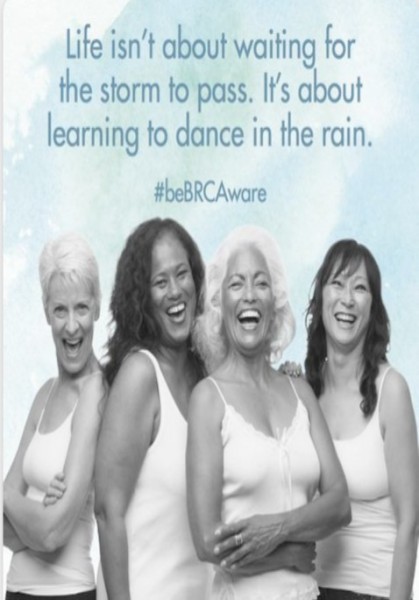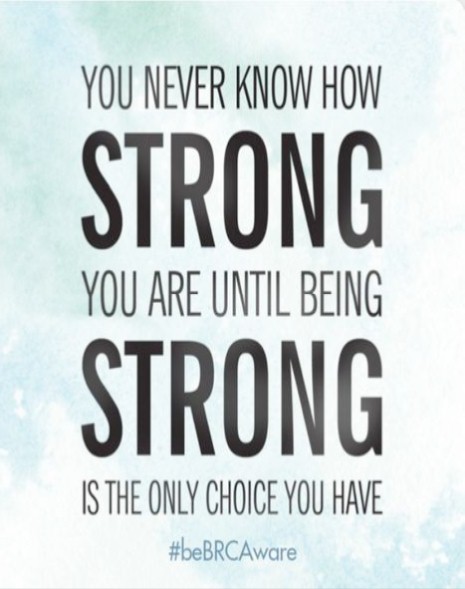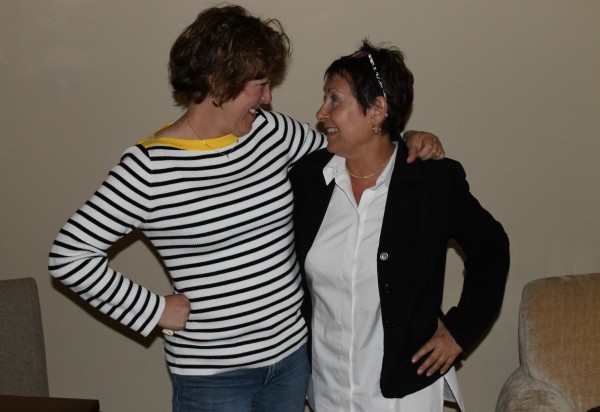I received $150 from AstraZeneca, and any opinions expressed by me are honest and reflect my actual experience. This is a sponsored post for SheSpeaks/AstraZeneca.

This post is dedicated to my mom, who died of breast cancer in 1985 at the age of 55, as well as my best friend and “sorta-sister” Sandy whose BRCA test showed that she is at high risk for breast cancer.
She knew….she knew before any tests, any doctor visit, any mammogram. Funny thing is, that the mammogram never showed any signs of cancer. After insisting to her doctor that the lumps that she felt were not just fibrous cysts, and pushing for a biopsy that he said wasn’t necessary, he found it…the day after my wedding. She lost both breasts, went through radiation and chemotherapy, and tried everything….from drugs to a macrobiotic diet. Six months after Ben turned two she died at home. He never got to know her.
Then a few years ago, during breast reduction surgery, my “sorta-sister” Sandy (her mom and my dad lived together after my mom passed away for over 20 years) woke up to the news that there was something that just wasn’t right. While she’s on high alert and taking all of the proper precautions, she knew that there was a family history. She knew that she had to have the BRCA test to see if she was at risk…..and she is. She takes precautionary medication now to reduce her risks.
Last year another friend of mine was diagnosed…this time with Ovarian Cancer, it threw her for a loop. She’s now in the fight of her life.

What is a BRCA gene?
BRCA1 and BRCA2 are human genes involved with cell growth, cell division, and cell repair. Although they are most commonly associated with BReast CAncer, approximately 15% of women with ovarian cancer also have BRCA gene mutations. The daughter in me knows that I should be tested.
BRCA Facts:
- Women with BRCA gene mutations have an increased risk of developing ovarian cancer.
- In the general population, 1.4 percent of women will be diagnosed with ovarian cancer, while up to 40 percent of women with BRCA 1/2 mutations will be diagnosed with ovarian cancer in their lifetime.
- An estimated 15% of ovarian cancers are linked to BRCA mutations.
- BRCA gene mutations can play a key role in serous ovarian cancer, the most common form of ovarian cancer.
- Nearly one half of women with ovarian cancer who are BRCA-positive have no significant family history of breast or ovarian cancer.
While being diagnosed with cancer is devastating, knowing in advance can help you begin a treatment plan EARLY.

For more information
- Website: myocjourney.com
- Twitter: @beBRCAware
- Facebook: https://www.facebook.com/pages/beBRCAware/250939935114040
- YouTube: https://www.youtube.com/channel/UCmqqk6o8esolywblpF4-IKQ
